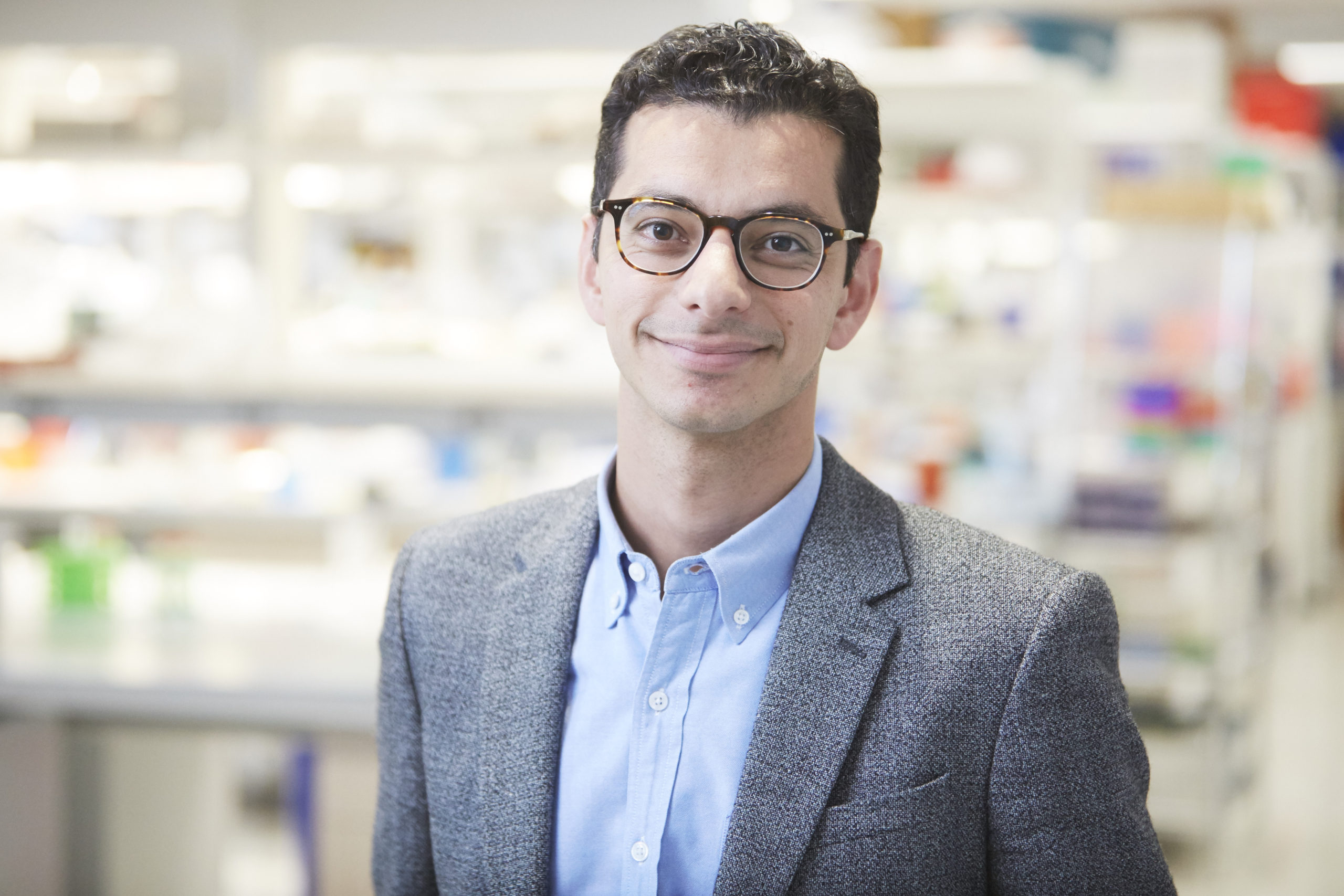Boston University’s Dr. Ahmad (Mo) Khalil runs a state-of-the-art lab for research into synthetic biology. An energetic and enthusiastic teacher, Khalil runs the eponymous Khalil lab at BU, and teaches in the Engineering department.
He was recently awarded the Vannevar Bush Faculty Fellowship, which will go towards his research into mimicking epigenetic memory. Read more about Dr. Khalil’s ongoing research here.
Hayat spoke with Dr. Khalil about his work at BU, family and adjusting to the pandemic, and more:
With regards to your work, what is the one thing you would like to accomplish or see accomplished in your lifetime?
Tough question! There are so many things we would like to accomplish scientifically. But one thing that immediately comes to mind is we’d love to see our eVOLVER platform in the hands of as many labs as possible. eVOLVER is an automated continuous cell culture system we invented that can enable a wide range of new experiments in synthetic biology, microbiology, evolutionary biology, and protein engineering. We built eVOLVER based on do-it-yourself (DIY) open-source principles with the goals of fostering decentralized and creative development of new laboratory hardware tools, enabling collaborative efforts across labs, and accelerating the pace of engineering designer biomolecules and cellular systems.
How early did your interest in engineering begin? In biology?
While I’ve always gravitated toward math, science and engineering, one of the more memorable experiences that inspired me to pursue science as a career was discovering and reading The Feynman Lectures on Physics. It was nothing like the textbooks we were given in science class in high school. While I’m sure I didn’t understand most of what I was reading, I do remember falling in love with science.
I’m actually a late-comer to biology. As an undergraduate, I studied Mechanical Engineering and Chemistry. I happened to take a senior-level elective in Cardiovascular Biomechanics, which opened my eyes to the possibilities of applying engineering concepts to biology. The rest is history!
With regards to the lab, how have things shifted during the pandemic? Do you anticipate major changes yet to come?
The pandemic has undoubtedly affected our research. During the isolation, we shut down the lab, except for a few essential operations. This meant that all of our experimental work had to be paused. We continued to meet as a group over Zoom, and tried to focus on computational work, reading papers, writing, etc. While this was not ideal, it did give us a chance to reflect on our projects and research directions. Currently, we’re back in the lab operating at ~30% capacity. Our group is divided into 3 shifts (morning, afternoon, evening), and within those shifts, lab members are taking all the required precautions (social distancing, wearing PPE, etc.). It’s unavoidable that we must segment the lab up and limit lab occupancy, but we undoubtedly lose something when we’re not all together. For example, many creative research ideas are spawned and developed through idle talk within the lab or at lunch. We miss out on those opportunities in the current environment.
What’s your home/work balance like now?
I have 4 young kids at home (8, 6, and 2 year old twins). They’re wonderful! But I’ll let your readers imagine what that means for work/life balance in the COVID-19 age.
You’ve mentioned living in 5 different countries by the age of 10, as well as multiple cities within the US. How long have you been in Boston? Do you still have family abroad?
I’ve been living in Boston since 2002 (18 years!). I moved out from California to attend graduate school, and have stayed ever since. My parents and siblings live in the US, but I have a LARGE extended family, most of whom live abroad.



